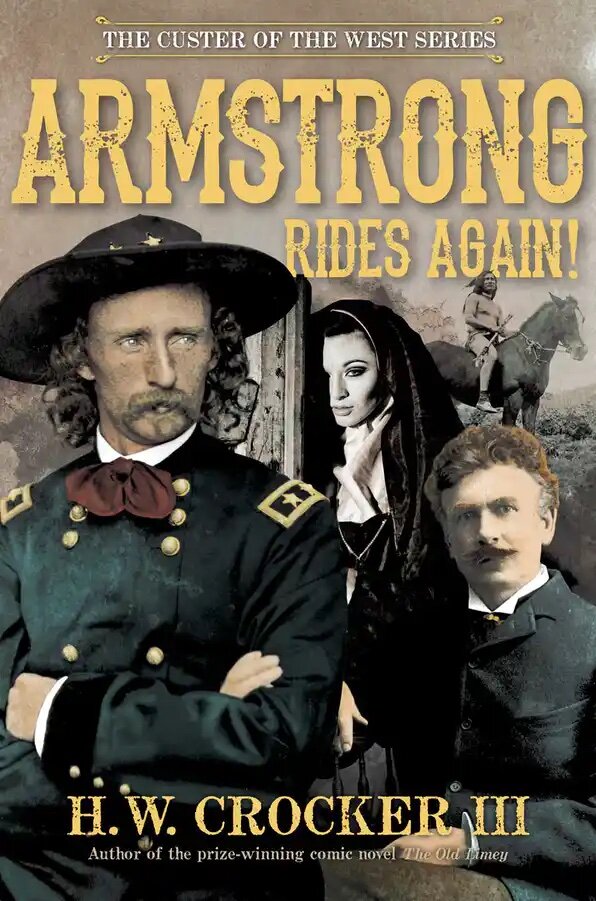If you want to read a series of comic novels that celebrate America—the old, pre-woke America—and that skewer the insanities of modern liberalism at the same time, you could do a lot worse than The Custer of the West series by H. W. Crocker III, the second installment of which is Armstrong Rides Again!
The first volume, Armstrong, imagined that Custer survived the Battle of the Little Bighorn. It’s a hoot, especially if you read between the lines—as you’re supposed to—of what is otherwise, a rip-roaring, shoot-’em-up, old-style Western. If you do read between the lines, you’ll find a trenchant critique of everything that liberalism now stands for.
That’s even truer in the sequel, where politics moves more to the forefront because Custer becomes involved in a Latin American country’s civil war, and the battle lines in that country eerily parallel the battle lines of red state and blue state America.
Armstrong Rides Again!, like its predecessor Armstrong, provides plenty of action, humor, and light romance—enough to keep any reader aged 16 to 96 eagerly turning the pages—but, again, if you read between the lines, it is a searing critique of the Left (and of “moderates” who don’t understand the dangers posed by the Left).
Custer, as portrayed in these books, is both courageous and comical, an idealized exaggeration of an American hero. He is the famed cavalry officer noted for his bravery, his Dr. Dolittle way with animals, and his devotion to his wife counterbalanced with his impetuousness, his naïve egotism, and his innocent magnetism for women. This is not the Custer of leftist mythmaking: he is not a ruthless killer of Indian women and children; not the blood-crazed idiot portrayed in the movie Little Big Man. On the contrary, and far truer to real life, he is the celebrated Indian fighter who actually liked Indians and delighted in the company of his Indian scouts. He is the perplexed, aggrieved commander who assumes he was abandoned by his subordinates Major Reno and Captain Benteen, and now seeks redemption from the tragedy and disaster of the Battle of the Little Bighorn by acting as a “have gun, will travel” Western soldier of fortune using the nom de guerre of Armstrong.
More than anything, the books are fun: full of delightful jokes and wordplay and references. The tone is often arch or whimsical, but driven by action-filled plotlines. There’s also a lingering, true-to-history sense of an America that still vividly remembers the reality of the Civil War. One of Custer’s recurring allies—and one of the best characters in the series—is a wise, witty, and winsome Confederate veteran. His comradeship with Custer evokes how America reconciled after the war. It is also, in its own way, a melancholy reminder of how our formerly shared understanding of American history, of heroes North and South, has been unraveled by new Marxist renderings of American history that have led to the abolition of Confederate statues, Union statues, and much else, and their replacement by things like the 1619 Project, which rips out liberty as America’s running theme and replaces it with racism.
If you prefer the old, patriotic version of American history, you will love The Custer of the West series. No, it’s not the equivalent of George MacDonald Fraser’s Flashman series (though some have made that comparison). It’s far too family-friendly for that. No, it’s not like Patrick O’Brian’s Aubrey-Maturin series. It’s far funnier. But for those who miss American idealism and optimism and can-do spirit, you could certainly do worse than Custer—and you will undoubtedly enjoy Armstrong and Armstrong Rides Again!



Comments
Leave a Reply